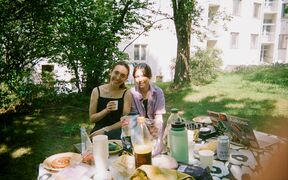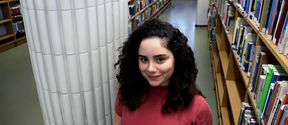Specialisations
The studies are flexible and can be completed at the student's own convenience. Basic core courses provide a strong foundation before further study in specific sub-areas. By selecting modules that fit with the student’s particular interests, the student will develop a wide palette of skills and creativity to tackle problems of significant importance. The programme has three majors: Mathematics, Applied Mathematics, and Systems and Operations Research. The major is chosen upon entering the programme. In addition to the major, students may select a minor from any discipline that suits their preferences.
Mathematics embraces mathematical thinking and educates students on how mathematical theories are constructed and how mathematical problems are formulated and solved. Education is research-oriented with all courses taught by mathematicians who lead active research projects related to the course topics.
This major is well suited for students who plan to become researchers or university teachers in mathematics or related sciences. A master’s degree in mathematics also provides the student with a broad range of skills in problem solving, logical reasoning and flexible thinking, which are attributes valued throughout society. The covered mathematical areas include algebra, algebraic geometry, complex analysis, differential geometry, graph theory, mathematical physics, partial differential equations, probability theory, and real analysis. A high proportion of students majoring in mathematics will continue their studies to a doctoral degree.
Examples of courses offered :
- Algebraic Geometry
- Elliptic Partial Differential Equations
- Lie Groups and Lie Algebras
Applied Mathematics is designed for students who are interested in applying mathematical sciences and learning to connect mathematical models and theories to real-world data via statistical methods. It is based on a solid mathematical core that offers the student a broad set of skills in computational methods, statistics, and optimisation needed for working on challenging mathematical problems. The major also includes an elective part that provides flexibility to focus on a master's thesis project in a chosen area of interest. A high proportion of students majoring in applied mathematics will continue their studies to a doctoral degree.
The importance of mathematical and statistical techniques is increasing in science and engineering as new fields employing sophisticated mathematical models are constantly emerging. The driving forces for such development are the ever-increasing computational resources, which should be used wisely and to their full power. This requires educating mathematicians who are able to interact and collaborate with experts in application areas. The major in Applied Mathematics responds to this need.
Examples of courses offered:
- Algebraic Methods in Data Science
- Multivariate Statistical Analysis
- Numerical Matrix Computations
The Systems and Operations Research major educates experts who master quantitative methods and can tackle decision problems in the planning and management of complex systems, grounded in solid mathematical foundations. Core topics in the major are optimizsation, statistics, forecasting, dynamic systems, simulation, and decision and risk analysis. The major includes hands-on laboratory assignments exercises and team-based project assignments on real problems posed by external organizations.
Overall, the major is founded on a balanced engineering-economic approach which builds on structured problem solving, systems thinking, and mathematical modelling. This approach allows operations research (OR) professionals to optimise the use of limited resources, improve the efficiency of production and services, and support decisions in recognition of risks and multiple objectives.
Examples of courses offered:
- Decision Analysis
- System Dynamics Simulation
- Optimization in Public Transport
More information on the programme content and curriculum can be found in the Student guide. There may be some changes to the courses for the academic years 2026–2028 — the new curricula will be published in April 2026, when they will also be visible in the Student guide.















